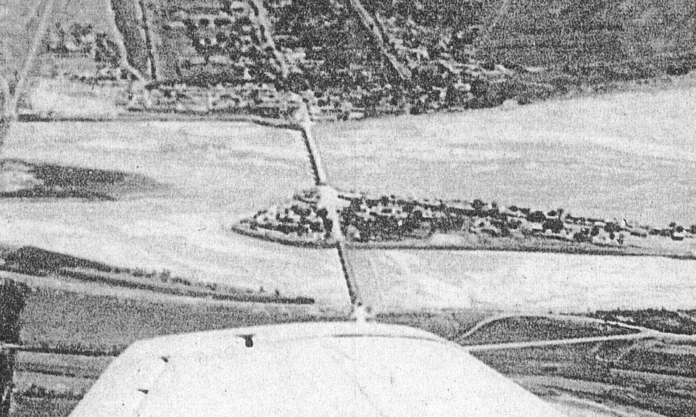Many believe it to have been the true beginning of the Second World War, while the 85th anniversary of that day has been marked in Nanjing in another solemn ceremony that reminds of our city’s unique place in 20th century history.
On 7 July, 1937, gunfire broke out between Chinese and Japanese troops station at Lugou Bridge, also known as the Marco Polo Bridge, in today’s Beijing. Unlike previous skirmishes, this one did not dissipate. It marked the start of the Second Sino-Japanese War, and a little over 2 years later, almost the entire world was embroiled in armed conflict.
The 85th anniversary of this day was marked yesterday at the Nanjing Massacre Memorial, when at 10:00 the nation’s flag was raised, while all assembled removed their hats and saluted, before singing the national anthem of the People’s Republic of China.
As a ceremony, yesterday’s event has much in common with the annual commemoration of the start of the Nanjing Massacre on 13 December. Both are held in the Memorial and feature many of the same proceedings, such as a presentation of flowers by the Nanjing Massacre Memorial Guard of Honour to the revolutionary martyrs and national heroes who gave their lives in the name of their ultimate victory.
With representatives of Nanjing’s youth and descendants of Nanjing Massacre survivors present, among others, yesterday’s ceremony was also broadcast live by CCTV, reports Nanjing Daily.
The Marco Polo Bridge Incident
Japan had mounted a full-out invasion of then Manchuria (now Northeastern China) in 1931, but tensions had been high since the Russo-Japanese War of 1904-1905, when Japan was granted control over several parts of the China Far East Railway.
On 7 July, 1937, after Japanese Army Private, Shimura Kikujiroan, failed to return to his post at Wanping on one side of the Lugou Bridge, an exchange of fire followed. According to “History of the 20th Century” (Purnell), “How the fighting started and who began it are questions to which no satisfactory answer can be given”.
Escalating into full-scale combat, the decision was taken here in the then capital of Nanjing to dispatch four army divisions northward. In a public speech, Chiang Kai-shek declared, “If we allow one more inch of our territory to be lost, we shall be guilty of an unpardonable crime against our race”.
As such, the Marco Polo Incident began to be regarded as the start of the Second Sino-Japanese War. But many think it was an event even more significant.
As far back as 1901, in the interests of protecting trade, China had allowed countries with legations in Beijing to station guards along the railways linking it with coastal Tianjin.
The aggressive Japanese advances upon those representatives of many nations are one key to the argument that World War II began here in China and not in Europe. There too, Adolf Hitler endorsed the opinion of Germany’s then-new Foreign Minister, Joachim von Ribbentrop, that Japan’s friendship was worth more than China’s. And hence Germany proceeded to recognise the Japanese puppet state of Manchukuo.
As the latter part of 1937 played out, Japanese troops advanced across the Yangtze River Delta from Shanghai to Nanjing, leading to the Nanjing Massacre and, 85 years later, to the memorial held in our city yesterday morning.









